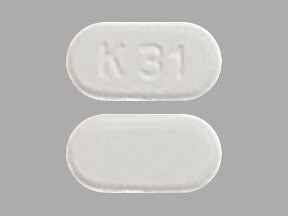
Ezetimibe Coupons & Savings Card – Discount Prices from $16.62
Generic for: Zetia
Ezetimibe, also known as Zetia, is a medication designed to help reduce high cholesterol levels in the blood. It is particularly effective at lowering low-density lipoprotein (LDL), commonly referred to as "bad" cholesterol. Ezetimibe works by inhibiting the absorption of cholesterol from the diet in the intestines. It can be used on its own or in combination with other cholesterol-lowering medications like statins or fibrates. To maximize its effectiveness, it should be paired with a healthy diet low in cholesterol and fat, as well as regular exercise. By managing cholesterol levels, ezetimibe helps decrease the risk of heart attacks and strokes. Always consult with a healthcare professional to determine the appropriate treatment for your needs.
Our coupons are free to use. Before paying, show the pharmacist your Ezetimibe savings card to get your free discount. Use our filters below to edit the prescription box to match your needs. The Ezetimibe prices will update based on your prescription needs. Above our Ezetimibe coupons, you can change your location to see pharmacy prices and costs in other areas. We're here to help you buy Ezetimibe at the lowest price with our prescription discount card.
My prescription
Edit
10MG, Ezetimibe (90 Tablets)
Select pharmacy

CVS
$30.01
COUPON PRICE
Walmart
$16.62
COUPON PRICE
Albertsons
$21.81
COUPON PRICE
Walgreens
$25.07
COUPON PRICEEzetimibe savings card
Show this card to your pharmacist
Walmart
$16.62
BIN
ID
PCN
GRP
019876
LHA466E76C
CHIPPO
LHX
Powered by
Ezetimibe, also known as Zetia, is a medication designed to help reduce high cholesterol levels in the blood. It is particularly effective at lowering low-density lipoprotein (LDL), commonly referred to as "bad" cholesterol. Ezetimibe works by inhibiting the absorption of cholesterol from the diet in the intestines. It can be used on its own or in combination with other cholesterol-lowering medications like statins or fibrates. To maximize its effectiveness, it should be paired with a healthy diet low in cholesterol and fat, as well as regular exercise. By managing cholesterol levels, ezetimibe helps decrease the risk of heart attacks and strokes. Always consult with a healthcare professional to determine the appropriate treatment for your needs.
Our coupons are free to use. Before paying, show the pharmacist your Ezetimibe savings card to get your free discount. Use our filters below to edit the prescription box to match your needs. The Ezetimibe prices will update based on your prescription needs. Above our Ezetimibe coupons, you can change your location to see pharmacy prices and costs in other areas. We're here to help you buy Ezetimibe at the lowest price with our prescription discount card.
More prescriptions for high cholesterol
coupons from$295.18Save 72%
coupons from$429.11Save 17%
coupons from$265.93Save 72%
coupons from$9.28Save 91%
coupons from$167.19Save 33%
coupons from$12.54Save 63%
coupons from$124.20Save 72%
coupons from$3.68Save 88%
More prescriptions for high cholesterol
Repatha Save 72%coupons from $295.18
Nexletol Save 17%coupons from $429.11
Praluent Save 72%coupons from $265.93
Cholestyramine Save 91%coupons from $9.28
Lipofen Save 33%coupons from $167.19
Tricor Save 63%coupons from $12.54
Fluvastatin Save 72%coupons from $124.20
Atorvastatin Save 88%coupons from $3.68
Ezetimibe dosage forms
Use our Ezetimibe 10MG coupon with prices from $16.62 for 90 Tablets. You can also use our Ezetimibe 10MG coupon with prices from $2.58 for 1 Tablet. We have a Ezetimibe 10MG coupon with prices from $4.19 for 20 Tablets. You can use our Ezetimibe 10MG coupon with prices from $5.04 for 30 Tablets.
Dosage Quantity Price from Per unit 10MG 90 Tablets $16.62 $0.18 10MG 1 Tablet $2.58 $2.58 10MG 20 Tablets $4.19 $0.21 10MG 30 Tablets $5.04 $0.17 10MG 500 Tablets $46.90 $0.09
| Dosage | Quantity | Price from | Per unit |
|---|---|---|---|
| 10MG | 90 Tablets | $16.62 | $0.18 |
| 10MG | 1 Tablet | $2.58 | $2.58 |
| 10MG | 20 Tablets | $4.19 | $0.21 |
| 10MG | 30 Tablets | $5.04 | $0.17 |
| 10MG | 500 Tablets | $46.90 | $0.09 |
